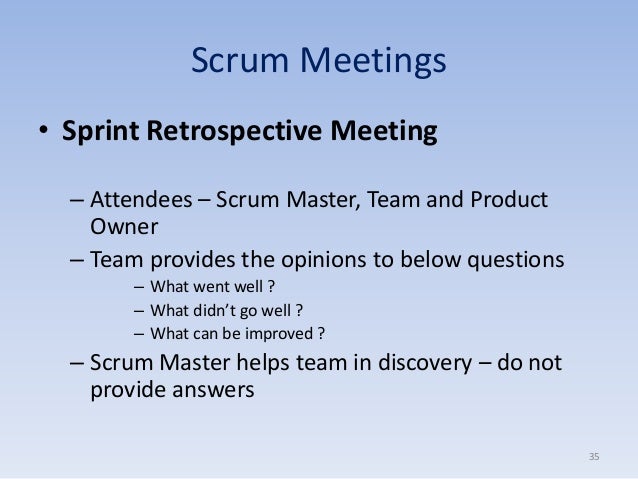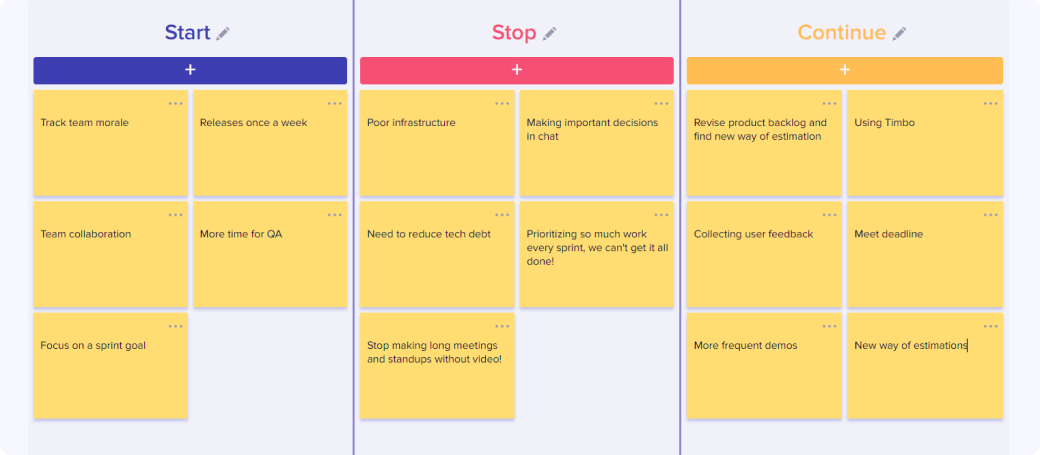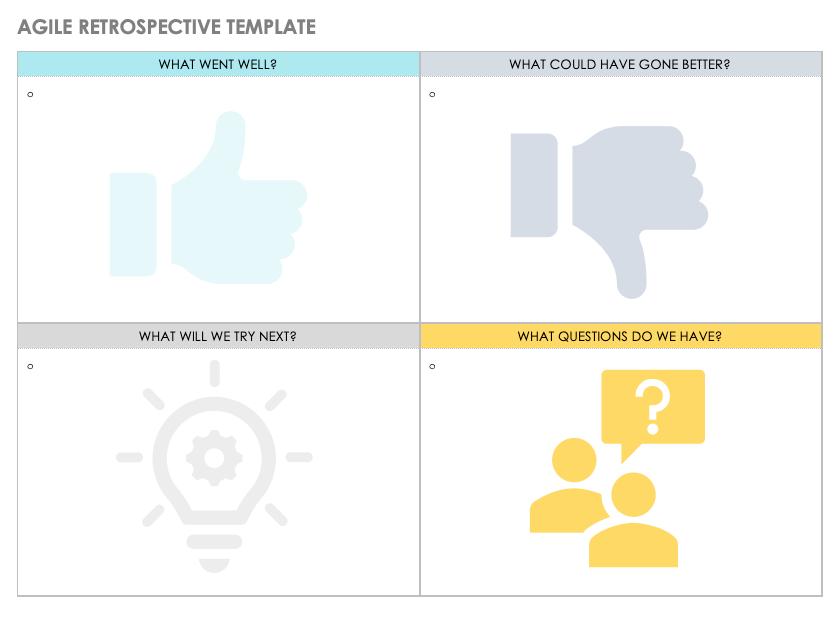

3 - Focus on lessons learnt and future considerations for the Main StageĪs it’s final retro, one of the most important things is to summarise accomplishments and lessons. You can read more about health checks in the article Team health check: how Timbo can help in getting great insights or visit our Youtube page to watch the recording of the webinar Agile team health & morale checks. Have you managed to improve that or the end was tough and challenging and brought more room for improvement? Check what were the initial results, best results and worst one. If you’ve been tracking team health, team morale or team remote adaptation metrics during the project, it would be great to see the dynamics of it from sprint to sprint. 3 - Measure the final health check and compare it to your baseline That will help to set a context of inspection & adaptation.

This way you will remember a lot of important achievements or lessons with no judgement yet. You can also try and draw just one timeline together where you as a Facilitator will ask the milestones from the team and place them on a timeline. Read them out loud or ask the team to comment. They can remember any milestones that were important to them. Ask them to draw a personal timeline of a project. This will activate their retrospective thinking and set the tone for the next exercises 2 - Build the timeline of the project to remember all important milestonesĪs long as you’re recalling not only the last sprint but the whole project the team might have already forgotten how it was. Ask them to describe a project in One Word. Try warming your team up with something quick and simple.
#Sprint retrospective questions free
Use this free remote retrospective template here that will help guide a retrospective meeting.If you’re reading this article, you might be approaching the end of a project or phase. What prevented the team from achieving a goal?.Did the team try something new that worked?.

A sprint summary of what worked and what didn’t work.A retrospective template with sprint retrospective examples includes: This fosters retrospective meeting ideas that can be used in future sprints and on future projects.Ī retrospective meeting agenda should be in an agile retrospective format. The retrospective agenda should cover the retrospective meeting points of the sprint. These retrospective ideas are aimed at improving the product, teamwork, and methodology in the future. The team determines if the methodology used worked or whether the team learned anything that would improve on the process in the future. The goal of the sprint retrospective meeting is to provide fresh retrospective ideas after a sprint. Led by the ScrumMaster, all individual contributors and stakeholders should prepare to discuss the most recent sprint and answer three process-related questions: What went well? What didn’t go well? What can we improve (for next time)? Retrospective AgendaĪ retrospective meeting occurs at the end of every sprint. Generally speaking, everyone involved in a project should attend the sprint retrospective. With a consistent retrospective agenda as a template, teams can confidently conduct retrospectives at regular intervals, allowing for constant iteration and improvement.


 0 kommentar(er)
0 kommentar(er)
